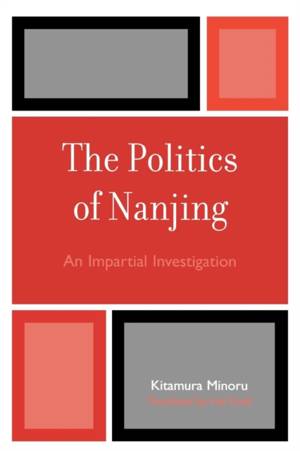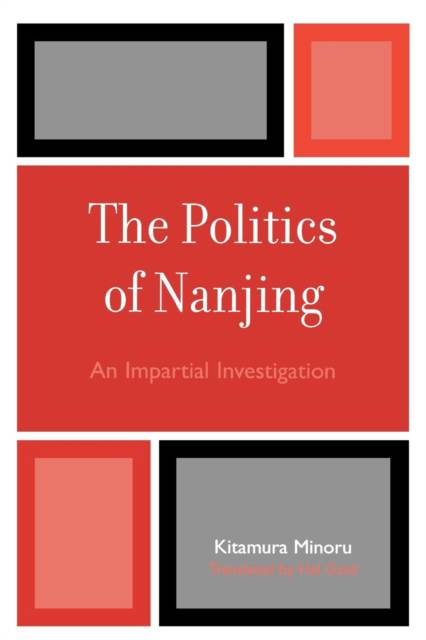
Bedankt voor het vertrouwen het afgelopen jaar! Om jou te bedanken bieden we GRATIS verzending (in België) aan op alles gedurende de hele maand januari.
- Afhalen na 1 uur in een winkel met voorraad
- In januari gratis thuislevering in België
- Ruim aanbod met 7 miljoen producten
Bedankt voor het vertrouwen het afgelopen jaar! Om jou te bedanken bieden we GRATIS verzending (in België) aan op alles gedurende de hele maand januari.
- Afhalen na 1 uur in een winkel met voorraad
- In januari gratis thuislevering in België
- Ruim aanbod met 7 miljoen producten
Zoeken
Omschrijving
The events of December, 1937 in Nanjing are long-standing causes of contention rooted in political differences of opinion between China and Japan. The Chinese view is unified, expressed in the '300,000 victims' engraved on the memorial walls in Nanjing, which bluntly refers to the Chinese opinion and entity of the 'Great Massacre School.' Views in Japan range from complete denial to agreement with the Chinese. The Japanese government's position of denial fuels the diplomatic clash. The Politics of Nanjing takes a centrist position in order to reconstruct historiographically the days leading up to and following the Japanese invasion of the capital and the political aftermath in China-Japan relations.
Specificaties
Betrokkenen
- Auteur(s):
- Vertaler(s):
- Uitgeverij:
Inhoud
- Aantal bladzijden:
- 190
- Taal:
- Engels
Eigenschappen
- Productcode (EAN):
- 9780761835790
- Verschijningsdatum:
- 16/10/2006
- Uitvoering:
- Paperback
- Formaat:
- Trade paperback (VS)
- Afmetingen:
- 155 mm x 228 mm
- Gewicht:
- 294 g

Alleen bij Standaard Boekhandel
+ 158 punten op je klantenkaart van Standaard Boekhandel
Beoordelingen
We publiceren alleen reviews die voldoen aan de voorwaarden voor reviews. Bekijk onze voorwaarden voor reviews.









